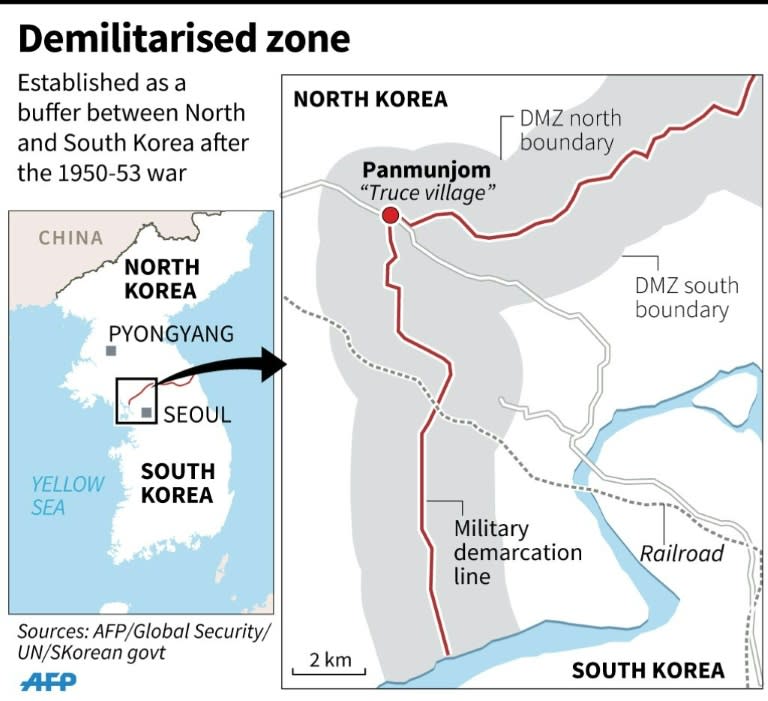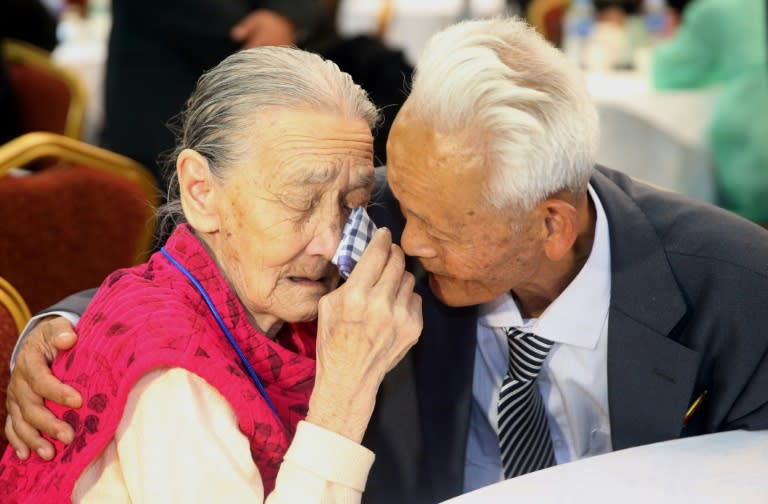North, South Korea agree to high-level talks next month
The two Koreas agreed Thursday to hold a rare high-level dialogue next month, in line with an accord struck in August aimed at easing cross-border tensions. A Unification Ministry official in Seoul said the two sides would meet at the deputy minister level on December 11 in the Kaesong joint industrial zone, just inside North Korea. Agreement on the dialogue was reached at working-level talks held Thursday in the border truce village of Panmunjom, which ran late into the night. Unification Ministry Spokesman Jeong Joon-Hee told reporters that the North Koreans had initially demanded a set agenda for the Kaesong meeting, but later agreed to Seoul's proposal for a "comprehensive discussion of pending issues related to improving ties". Although any talks between the two Koreas are generally welcomed as a step in the right direction, precedent suggests it is still too early to hope for any significant breakthrough in December. - Protocol challenges - A similar effort back in June 2013 saw both sides agree to hold what would have been the first high-level dialogue for six years -- only for Pyongyang to cancel a day before the talks were scheduled to begin. In the end, it was a matter of protocol -- the North felt insulted by the South's nomination of a vice minister as its chief delegate -- that smothered the initiative before it had even drawn breath. Jeong said Seoul had pushed for the Kaesong meeting to prioritise the issue of regular reunions for families separated by the 1950-53 Korean War, which cemented the division of the Korean peninsula. North Korea, however, wanted the initial focus to be on a resumption of visits by South Korean tour groups to its scenic Mount Kumgang resort. The tours, a source of badly needed hard currency for the cash-strapped North, were suspended by the South in 2008 after a female tourist was shot dead by a North Korean guard. Thursday's meeting in Panmunjom marked the first inter-governmental interaction since August when the two sides sat down to defuse a crisis that had pushed them to the brink of an armed conflict. - Building on August accord - That meeting ended with a joint agreement that included the commitment to resume high-level talks. Under the terms of the August accord, Seoul switched off loudspeakers blasting propaganda messages across the border after the North expressed regret over mine blasts that maimed two South Korean soldiers. The South interpreted the regret as an "apology" and admission of responsibility, but the North's powerful National Defence Commission later stressed that it was meant only as an expression of sympathy. The move to resume high-level contact comes amid diplomatic shifts in the northeast Asia region that have left North Korea looking more isolated than ever, with Seoul moving closer to Pyongyang's main diplomatic and economic ally China, and improving previously strained relations with Tokyo. Earlier this month, the leaders of South Korea, China and Japan held their first summit for more than three years in Seoul. Although the focus was on trade and other economic issues, the three declared their "firm opposition" to the development of nuclear weapons on the Korean peninsula. North Korea is already under a raft of UN sanctions imposed after its three nuclear tests in 2006, 2009 and 2013. South Korean President Park Geun-Hye recently reiterated her willingness to hold face-to-face talks with North Korean leader Kim Jong-Un -- but only if Pyongyang showed some commitment to abandoning its nuclear weapons programme. The two Koreas have held two summits in the past, one in 2000 and the second in 2007. The United Nations is also understood to be in discussions with North Korea over a visit by Secretary General Ban Ki-moon -- possibly before the end of the year. Ban had been scheduled to visit in May this year, but Pyongyang withdrew the invitation at the last minute after he criticised a recent North Korean missile test.

 Yahoo Finance
Yahoo Finance 


